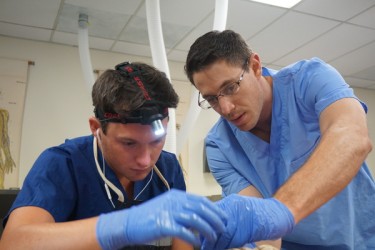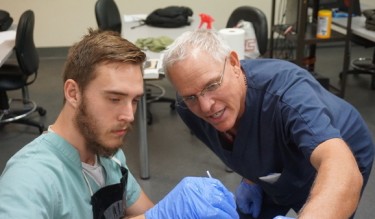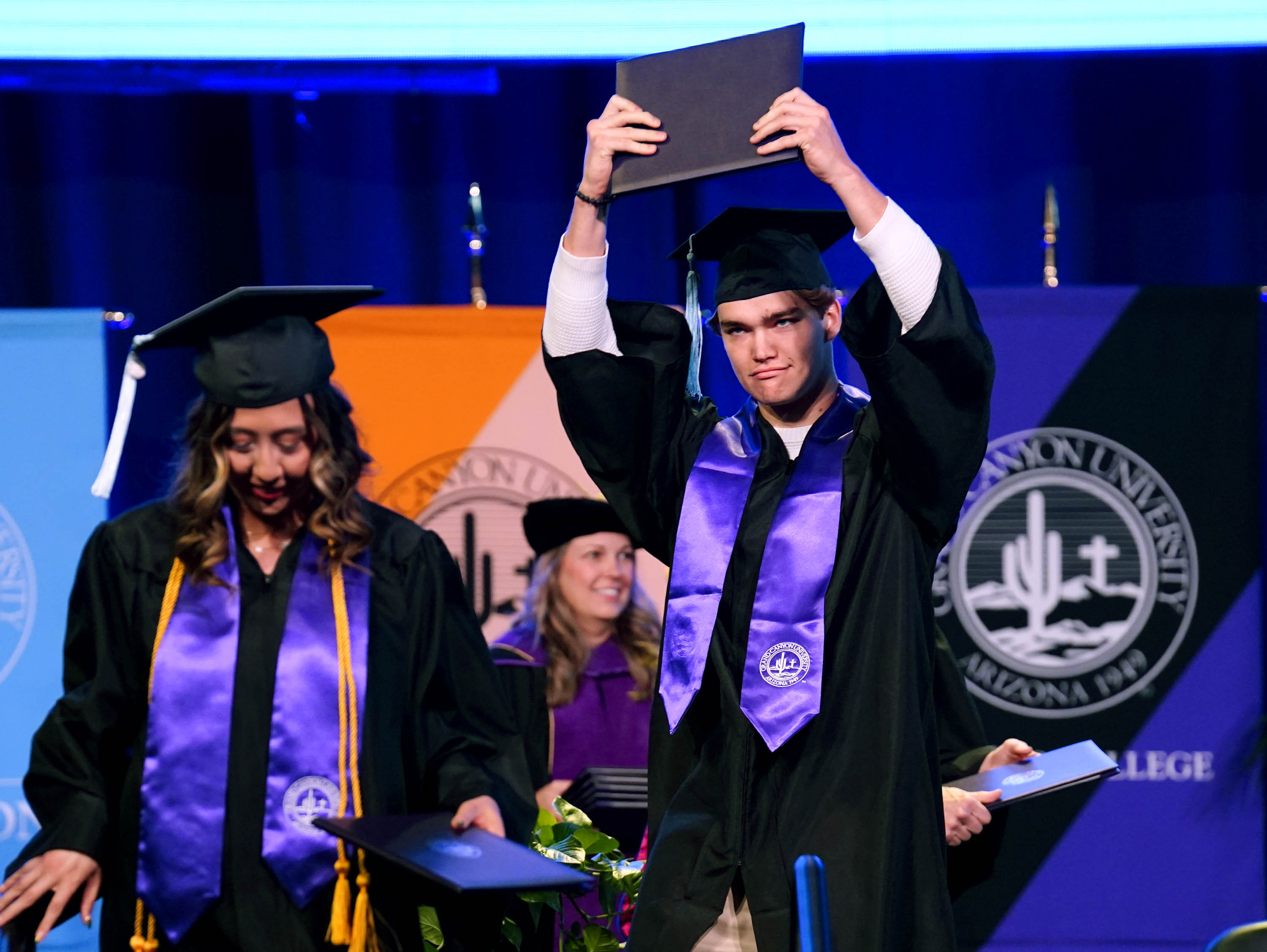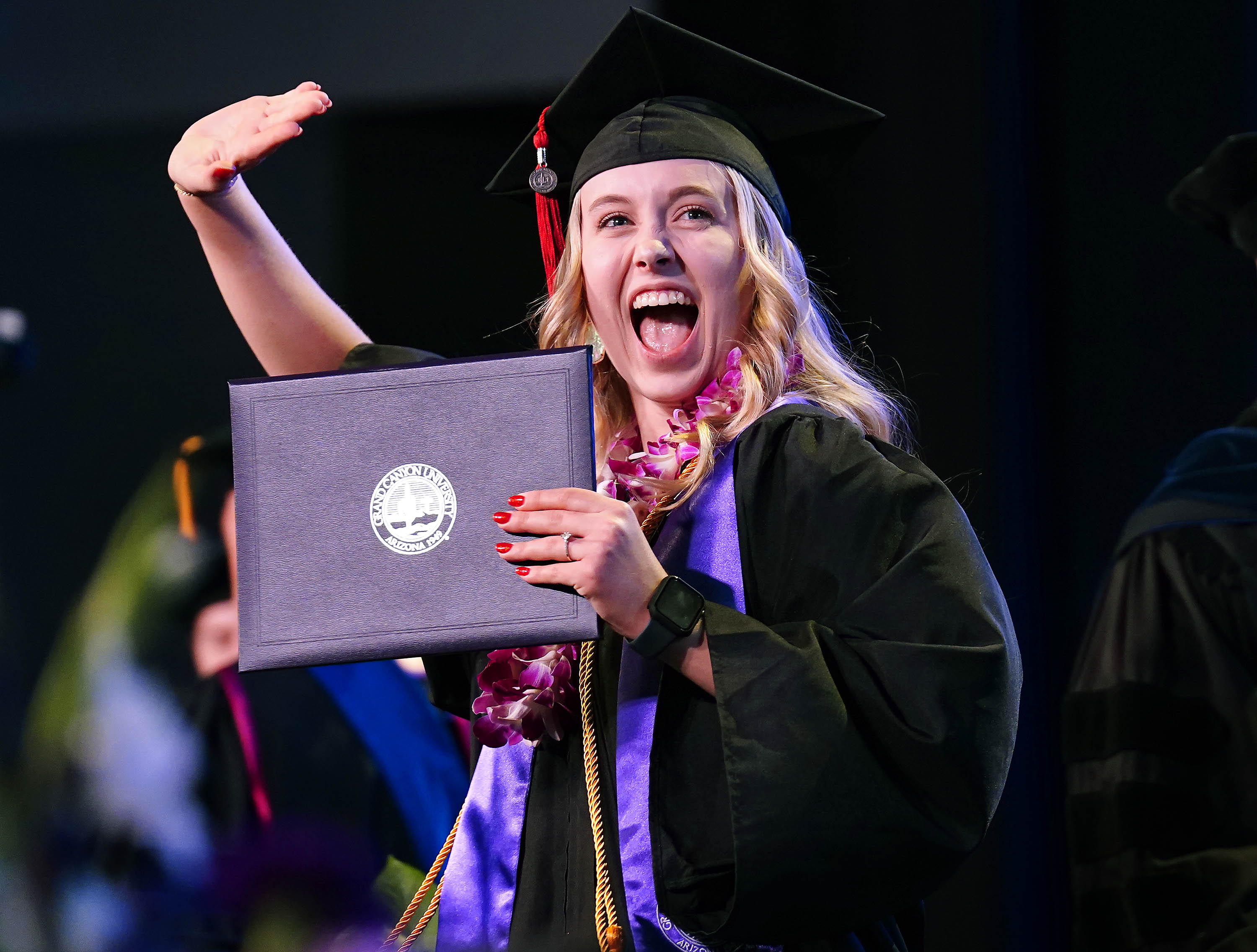By Michael Ferraresi
GCU News Bureau
With surgical precision, Josh France sliced and scraped skin and tissue away from a human cadaver at the Grand Canyon University anatomy lab, taking care to complete his assignment to make the arteries, veins, nerves and other vessels visible.
The premed senior focused his scalpel on the head and neck — his specific interest in medicine — while his classmates in GCU’s Biology 492-L dissection internship worked on internal organs, joints and other areas of the body that match their career pursuits. As the students honed their dissection skills, they also removed organs and prepared various body parts to be used in demonstrations in 200-level biology courses in the fall semester.
This summer, France and several other students are pioneering the new two-credit course, which the College of Science, Engineering and Technology has limited to pre-med and other pre-health professional majors who demonstrate a grade-point average of 3.5 or higher, in addition to an A- or better in their introductory anatomy and physiology coursework. Students interested in the internship should check with their student services advisor about eligibility for the fall.
CSET faculty who designed the 492 course wanted to limit access to the popular cadaver lab, which is known as the only lab in Arizona that allows undergraduates to dissect human cadavers. In years past, all pre-med majors could work on the cadavers. However, due to the rising need to tend to a fast-growing CSET student population, the 492 lab has been redesigned as an exclusive internship where students can train for medical school while benefitting their academic program.
“It’s like a blueprint that I can use and take with me when I move on next year,” said France, 21, who plans to study oral and maxillofacial surgery in dental school after GCU.
He said he’s constantly learning the nuances of human anatomy by exploring the body in detail and completing checklists of dissection tasks that demonstrate various surgical techniques.
“I’m getting to know how far I’ll have to go to dissect and reveal something, how close to the bone I need to go to in the type of oral surgeries that I’ll end up doing,” he said. “It’s just fueling my passion, having this opportunity.”
Rare opportunity for undergrads
Michael Bodeen, the CSET faculty member who oversees the anatomy lab and Bio 492-L course, said this summer’s students are preparing the new cadavers for Biology 201 and 202 Human Anatomy and Physiology courses.
Three to five students work on a cadaver at a time, with each following various assignments that allow them to see their coursework in vivid detail and help them demonstrate their skills for the rigorous medical school application process. Students are required to complete a minimum of 90 hours dissecting cadavers, and their work is meticulously charted.
“We try to make it specific to their interests,” Bodeen said. “So, if you’re interested in becoming a dentist, you can focus on the head and the neck, like Josh, and if you’re focused on orthopedics, you’re going to explore the joints.”
Students in the 492 lab are trained on proper medical techniques and to honor the cadavers that have been donated for scientific purposes. Bodeen said that in the lab environment, the gentlest tug or cut could ruin a specimen and “the educational value of the gift is destroyed,” so he is constantly fostering a sense of “respect and professionalism” that he hopes students take with them to medical school.
CSET dean Dr. Mark Wooden said the process of identifying top students for the 492 lab will provide exclusive access for those who are motivated to shape comprehensive graduate school resumés.
Many medical school students have completed anatomy and physiology coursework in their undergrad programs. However, those with dissection experience might have worked on animal cadavers, but not the human cadavers that have made GCU such a draw for pre-med students.
“They need to understand how that is a key differentiator when you’re sitting in front of the board,” Wooden said about how the dissection internship could help students stand out and secure interviews with the highly selective graduate school interview panels.
Pre-PT, exercise science internships also available
The dissection internship is one of three health science internships offered through CSET. Students are required to block out the time, as they would any course, and the internships are unpaid.
GCU pre-health coordinators Helen Howard and Cherissa Chacon work with CSET faculty to select students for the 492-L course, in addition to pre-physical therapy and exercise science internships at Valley health care facilities.
Each internship is highly competitive, they said. Pre-physical therapy and exercise science majors must meet a high academic standard, similar to the requirements of the dissection internship.
Like dissection, pre-PT and exercise science students are required to complete 90 hours of work, such as assisting licensed physical therapists to care for patients in rehabilitative and personal-training settings where their kinesiology and physiology lessons come to life.
“They’ll be shadowing physical therapists, learning everything from client case management to the business end of the practice,” Chacon said about the pre-PT internship. She added that those experiences allow students to network in the PT and exercise science industries and forge relationships that could bolster their graduate school applications.
Howard said the dissection and pre-PT internships allow students to practice on many of the techniques that they’ll refine in medical school.
“It really prepares them for what they’ll face in their first year of med school,” Howard said. “To have those skills really gives them an advantage over other students.”
Reach Michael Ferraresi at 602-639-7030 or [email protected].





